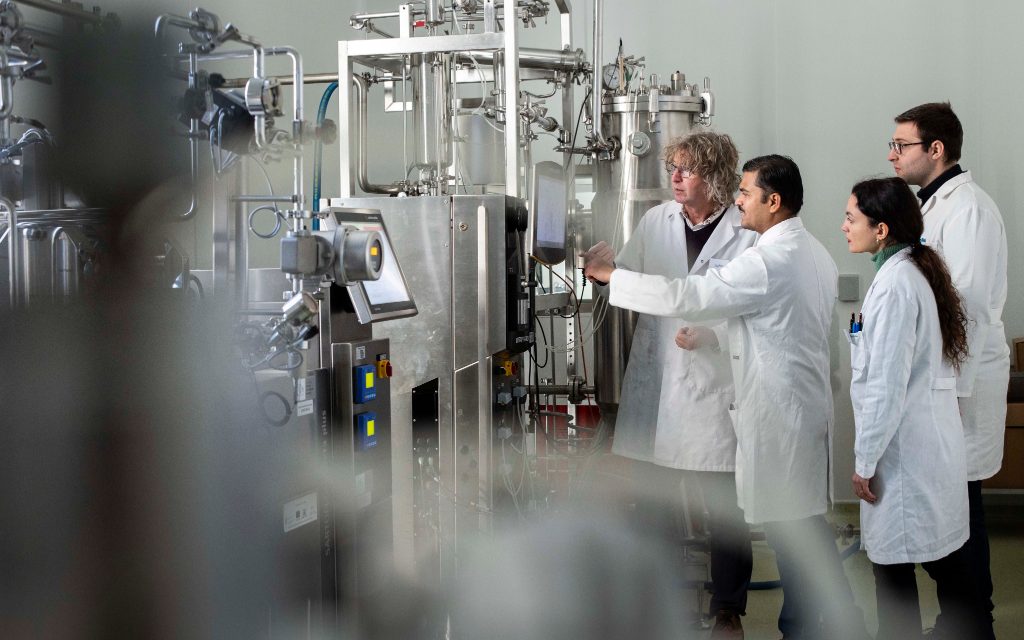The Centre for Sustainable Fermentation and Bioprocessing Systems for Food and the Bioeconomy was established in October 2021 to provide a new interdisciplinary focus to address major challenges and opportunities in the allied areas of sustainable food production and the circular bioeconomy.
SUSFERM is a multidisciplinary centre that integrates the expertise of research teams from Microbiology, Food and Nutritional Sciences and Process & Chemical Engineering to create new research synergies to tackle complex scientific and technological challenges associated with development of new products and processes related to microbial fermentation.
Equipments and Services
Funding Partners
Centre for Sustainable Fermentation and Bioprocessing Systems for Food and the Bioeconomy
Contact us
Food Science Building, University College Cork, T12 K8AF,

